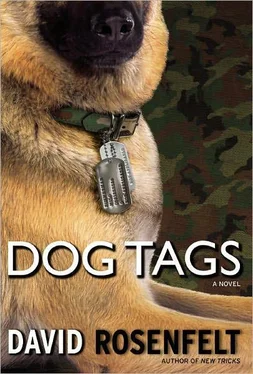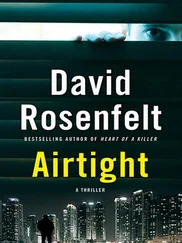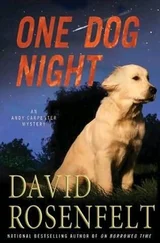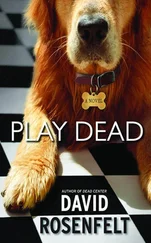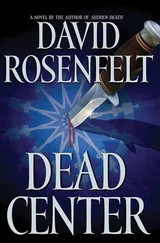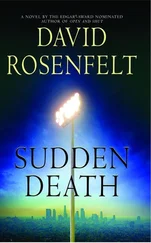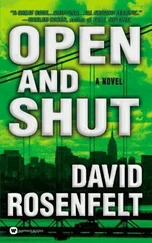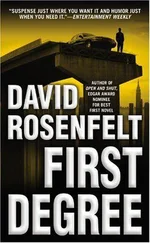M also knew that he would have no trouble getting to Milo whenever he wanted. As soon as Landon gave him the word—and M hoped that would be soon—M would do what had to be done.
M picked up his cell phone and called Landon at the number he always answered.
“Speak,” Landon said.
“The dog has been taken out of the shelter, and I’m following him.”
“Does the lawyer have him?”
“No.”
“Are there any reasons for me to be concerned?” asked Landon.
“None.”
“Good.”
Click. Landon hung up without saying good-bye. M didn’t take offense. Not with the money he was making.
CHAPTER 25
“THERE’S NO DEAL TO BE MADE.” I have a tendency to be direct with my clients, which they sometimes find jarring. But it’s the only way I know how to do it, and as bad as it might feel for them in the moment, in the long run they’re better off. In my view there is nothing, absolutely nothing, worse for someone in prison than false hope.
If Billy finds my announcement upsetting, he hides it well. “This is coming from the prosecutor?” he asks. His tone is mild curiosity, as if I just told him the Mets split a doubleheader.
I nod. “It is, but he says he has spoken to everyone involved, including the feds. Nobody has put the slightest bit of pressure on him to make a deal.”
“So where does that leave us?” he asks. Still no panic, no arguments, just a desire to focus on what needs to be done. You can’t ask for much more from a client in this situation.
“We go to trial and get a jury to take our side. That’s as soon as we get a side.”
“You mean other than I didn’t do it?”
“That goes without saying,” I say. “But I like to tell the jury who else at least might have done it. If A is their only choice, they have a tendency to pick A. We need to give them a B and maybe a C.”
“I saw the guy who did it,” he says. “It was dark, but I might be able to ID him. And he was at least six foot five. When I kneed him in the balls, I almost went too low and missed.”
“That might come in handy, but we have to find him first.”
“There was a lot of commotion after it happened, and there were a couple of guys, maybe three, who got to the scene really quickly. I don’t think they were cops, because I never saw them again.”
“Can you ID them?” I ask.
“No chance. But I got a license plate number off the shooter’s car.”
This revelation, while certainly a positive, annoys me in that it wasn’t made before. “When were you going to let me know that?” I ask.
“Now,” he says, and then softens it with, “No more holding back, I promise.”
“So is there anything else?” I ask.
“Maybe. I’ve been thinking about that night. When Erskine took out the envelope, the killer reached into his own inside jacket pocket for the gun. Like this.” He demonstrates how it was done.
“So?”
“So that’s not where someone would ordinarily carry a gun, which I imagine was designed to fool Erskine.”
“Sounds like it did,” I say.
Billy shakes his head. “I think there was more to it. Erskine was tough and smart; he would have reacted if he thought there was any danger at all. And that guy reaching into his pocket should have meant danger, unless Erskine thought he was reaching for something else.”
“Like an envelope of his own?”
Billy nods. “Right. I think Erskine believed they were going to trade.”
“Blackmail,” I say. We’re far from knowing that for sure, but it’s certainly a possibility. It’s also quite possible that Erskine just expected to be paid for whatever was in the envelope.
“You have investigators?” Billy asks.
I nod. “I do, but I need to figure out what direction to send them in. What are the chances Milo can lead me to that envelope?”
“No way; he was pretty freaked out from the gunshot. I could probably get him to lead me to it, but I doubt he’d do it for you. You’d have to build up a lot of trust first, which takes time.”
“Could he have been so scared he just dropped it somewhere?”
He shakes his head. “I wouldn’t think so. Milo knew that the things I had him take were important; he wouldn’t be careless with them.”
I hadn’t had much confidence that I could get Milo to retrieve the envelope for me, so I’m not surprised by what Billy is saying. “We can get by without the envelope, as long as we can learn what was in it.”
“Why?” he asks.
“Because there’s a good chance Erskine was killed for it. If we know why it was so important to someone, we’re a hell of a lot closer to figuring out who that someone is.”
We kick this around a little longer, and I tell Billy to write down everything he knows about Erskine. “Even if it’s a rumor and you have no idea if it’s true, write it down and tell me that.”
He nods. “Okay, I’ll get right on it. How’s Milo doing?”
“He’s fine and somewhere safe.”
“Thanks for doing that,” he says. “I was feeling awful that I put him in that situation.”
Every time Billy says something like that, I like him a little more, and regret my taking on a new client a little less. “Starting right now you have to worry about yourself.”
“So you’re going to do this?” he asks.
I nod. “Yeah. I am, if you still want me.”
“I absolutely do. But we need to talk about your fee,” he says. “The problem is, no matter how much it is, I can’t pay it.”
I shrug. “Then we need to get you and Milo back out there stealing again.”
He laughs. “Sounds good to me.”
I leave and reflect on what has been a long day at work. I take less satisfaction in that than other people might, because I hate long days at work. I hate short days at work also, just not as much.
The truth is, today wasn’t so bad, especially getting Milo sprung. It pains me to admit it, even to myself, but Laurie was probably right that I ought to be back in the action occasionally; that I need to intellectually engage in that fashion to stay sharp.
Now that I think of it, I hope she was right. Because a murder trial requires a lot of very long, very stressful workdays, and there will be little time to think of anything else if we hope to win.
And there’s nothing, absolutely nothing, worse than losing.
CHAPTER 26
TRIALS, LIKE FOOTBALL GAMES, ARE WON OR LOST BY TEAMS, NOT INDIVIDUALS. The lawyers, the investigators, the expert witnesses, and the client are all integral to the process, and must function smoothly together. It is much more difficult than it sounds.
Teamwork is, in fact, one of the many built-in advantages that the prosecution side generally has in its favor. The same people, all employed by the government, work together on many cases throughout the year. There is usually a substantial familiarity among the lawyers, police, forensics people, and expert witnesses on the prosecution side, and they don’t have to waste time trying to develop a cohesive unit.
This morning I am convening a meeting of the team that will attempt to earn an acquittal and release for Billy Zimmerman. The only newcomer to the team, meaning someone who hasn’t worked with this group previously, is Hike Lynch. He’ll share the lawyering duties with me, though I’ll be in first position.
Laurie will run the investigative unit, with Marcus Clark supporting her. Sam Willis, my accountant and an absolute computer genius, will provide all of us any information we need that can be found online. Which is a valuable resource, since everything that has ever taken place in recorded human history can be found online, especially if the person sitting at the computer is a brilliant hacker with no concern for legalities.
Читать дальше
